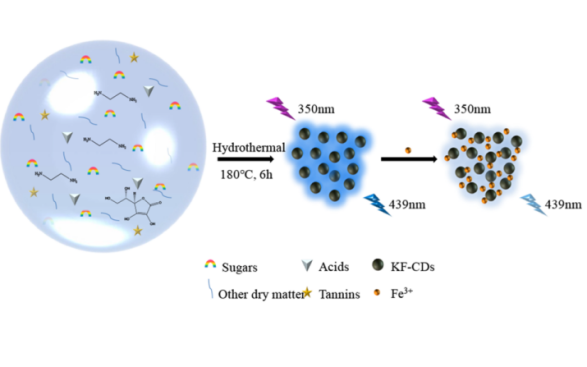
 Feb
02, 2021
Feb
02, 2021
The team of fruit quality safety control technical is committed to developing multifunctional nanomaterialsfrom biomass carbon sources. This team used kiwi as biomass carbon sources to synthesize a newfluorescent nanomaterials (KF-CDs) that have the great potential in the sensitive detected of Fe3+. From the fluorescence interference experiment, it was obviously quenched by Fe3+ within seconds, and have a good linear relationship between 1-33.8 μmol/L, the linear equation was y=""0.9546+0.0689x"" (R=""0.996),"" and the detection limit was 0.097 μmol/L. The WHO stipulated that Fe3+ in drinking water should not exceed 0.3mg/L (∼5.36 μmol/L). This work was supported bythe Agricultural Science ...
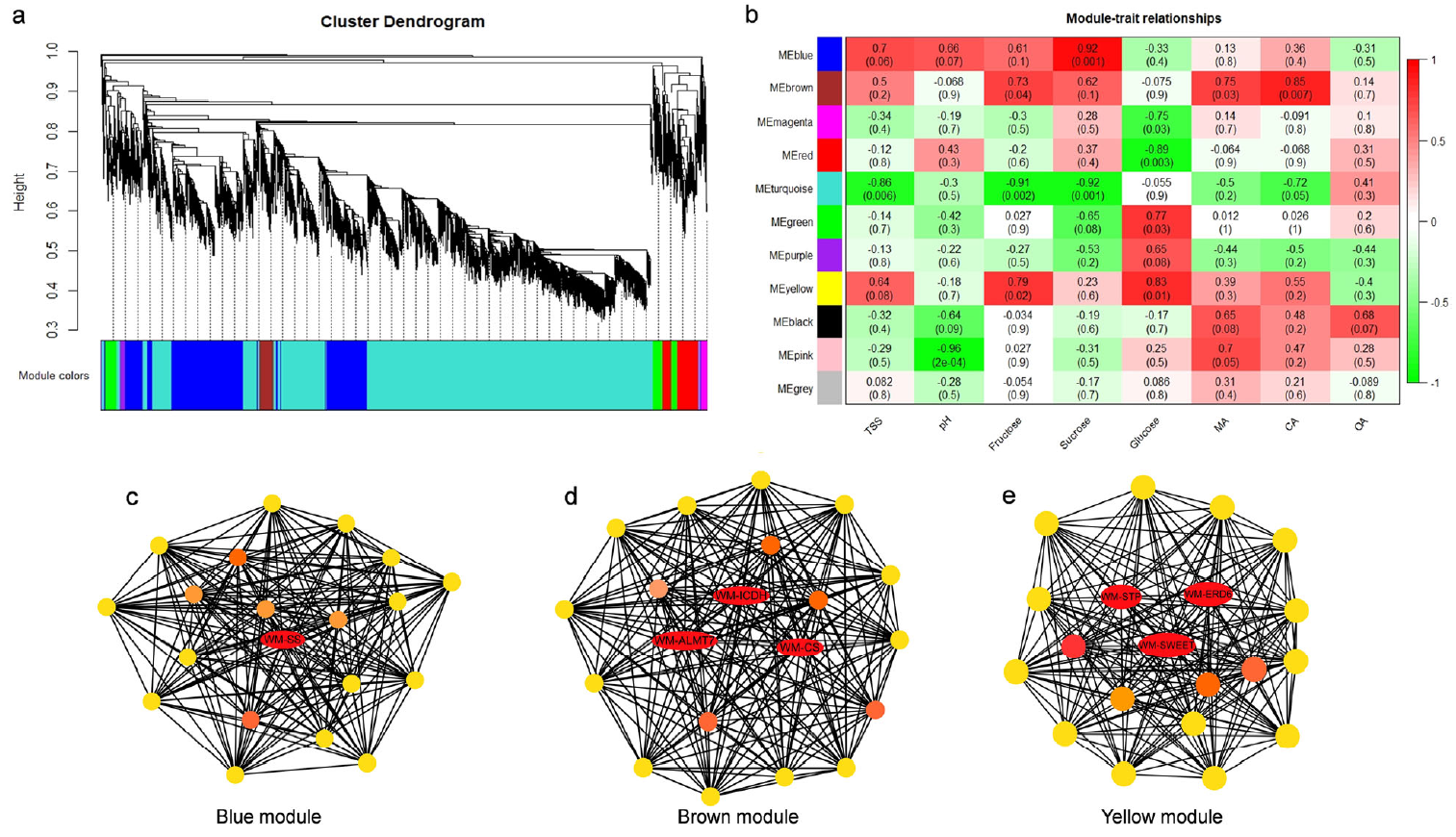
 Dec
03, 2020
Dec
03, 2020
Recently, the innovation projectwatermelon and melon cultivation and physiology team of Zhengzhou Fruit Research Institutehas made new progress in the metabolism regulation of sugar and organic acid in watermelon fruit. The changes of sugar and organic acid during the fruit development were analyzed and the key gene networks controlling the metabolism of sugar and organic acid during the fruit development were identified. These results provided a theoretical basis for watermelon quality breeding, which had important scientific significance for the development of watermelon industry and the improvement of watermelon breeding level in China. The related research results were published in the j...
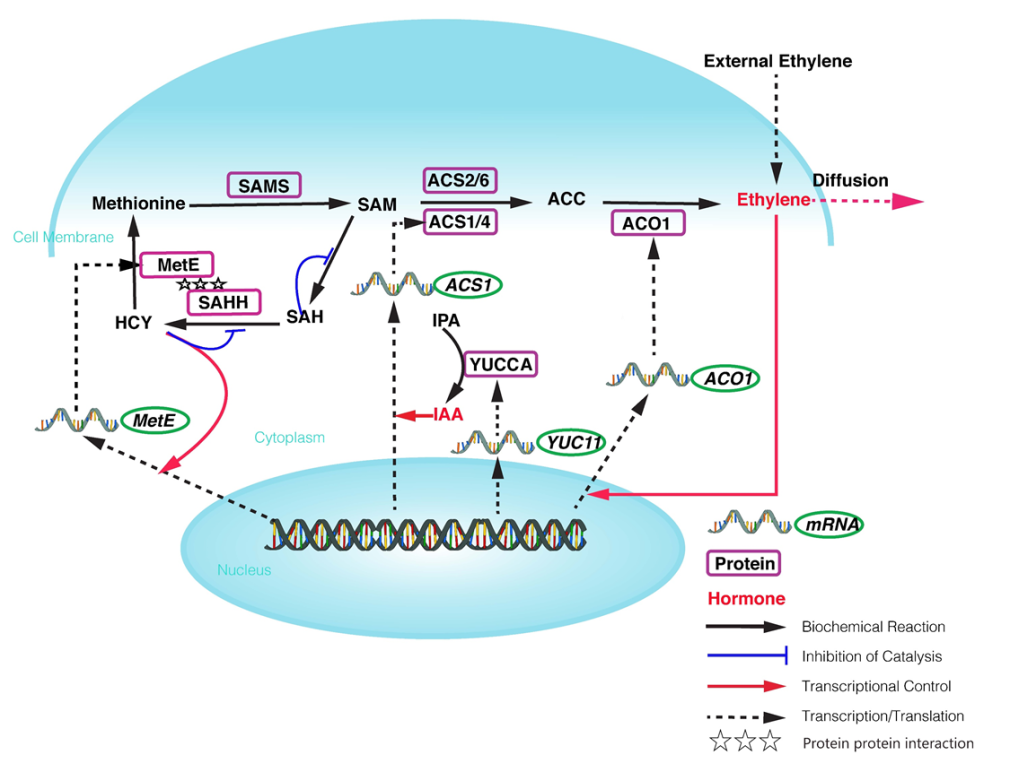
 Nov
17, 2020
Nov
17, 2020
Peach (Prunus persica) is a typical climacteric fruit that produces ethylene rapidly during ripening, and its fruit softens quickly. Stony hard peach cultivars, however, do not produce large amounts of ethylene, and the fruit remains firm until fully ripe, thus differing from melting flesh peach cultivars. Recently, an article entitled “Application of an antibody chip for screening differentially expressed proteins during peach ripening and identification of a metabolon in the SAM cycle to generate a peach ethylene biosynthesis model” completed by Professor Wang Zhiqiang from Zhengzhou Fruit Research Institute of CAAS. In this study, to identify the key proteins involved in peach fruit ripenin...
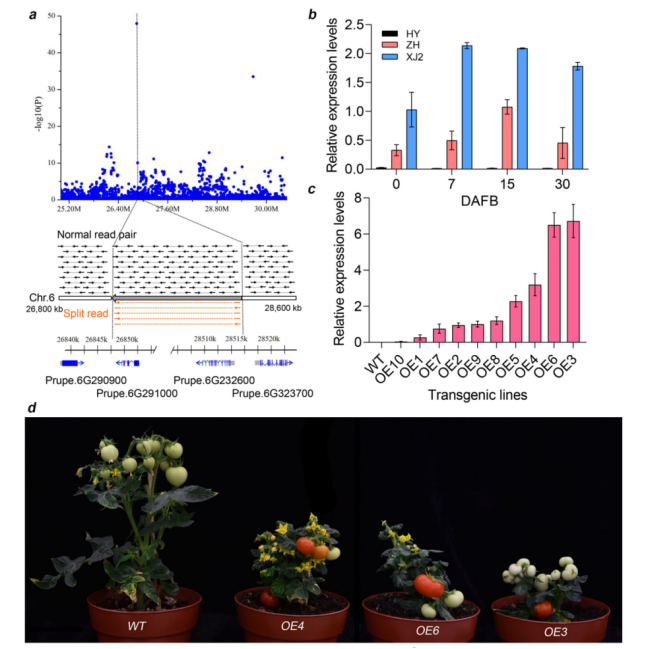
 Oct
19, 2020
Oct
19, 2020
Recently, Prof. Wang Lirong from Zhengzhou Fruit Research Institute (ZFRI) has published their new findings in peach genome structure variation field in Genome Biology . Genome structural variations (SVs) have been associated with key traits in a wide range of agronomically important species; however, SV profiles of peach and their functional impacts remain largely unexplored. In this study, the researchers present an integrated map of 202,273 SVs from 336 peach genomes. A substantial number of SVs have been selected during peach domestication and improvement, which together affect 2,268 genes. Genome-wide association studies of 26 agronomic traits using these SVs identify a number of cand...
 Aug
21, 2020
Aug
21, 2020
Recently, the watermelon and melon cultivation and physiology team of Zhengzhou Fruit Research Institutehas made new progress in the localization of important agronomic traits in watermelon. The important functional genes for three traits which were skin color, seed coat color, and internode length of watermelon were explored and analyzed, the genetic and molecular mechanisms were elucidated, the related molecular markers were developed. These results provided a theoretical basis for watermelon molecular breeding, which could accelerate the breeding process of watermelon in China, and had important scientific significance for the development of watermelon industry and the improvement of wate...
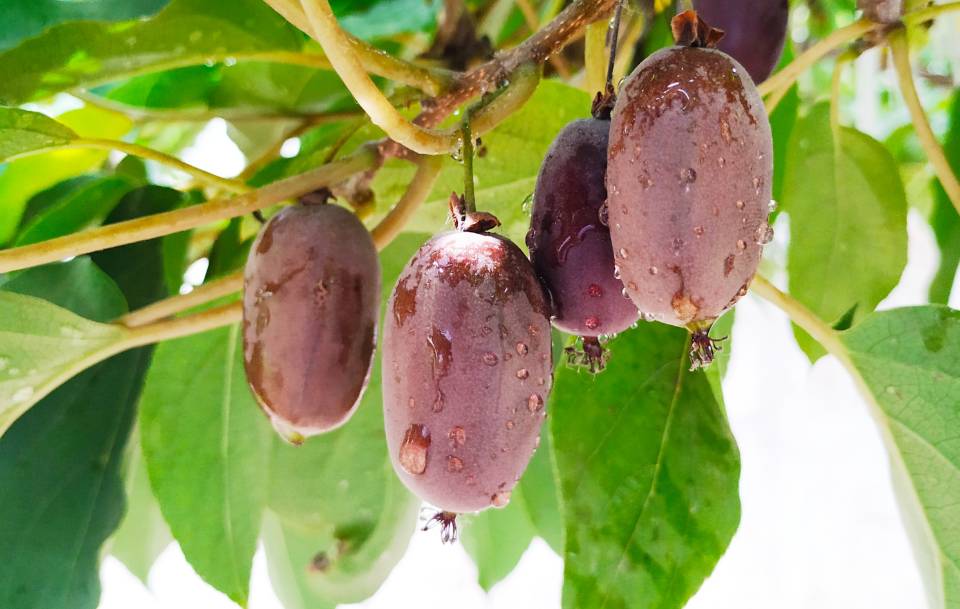
 Aug
17, 2020
Aug
17, 2020
Recently, an article, entitled “MicroRNA858 negatively regulates anthocyanin biosynthesis by repressing AaMYBC1 expression in kiwifruit (Actinidiaarguta)” completed by Prof. Jinbao Fang’s lab from Zhengzhou Fruit Research Institute, Chinese Academy of Agricultural Sciences, was published in international botanical journal Plant Science (5-year if = 4.253). This work mainly focused on the genomic localization and functional verification of key regulator. Additionally, it provided molecular basis for genetic improvement of kiwifruit color quality. Actinidiaarguta,Ruby Star China is the origin of Actinidia genus with abundant germplasm resources. The larger cultivation proportion of green k...
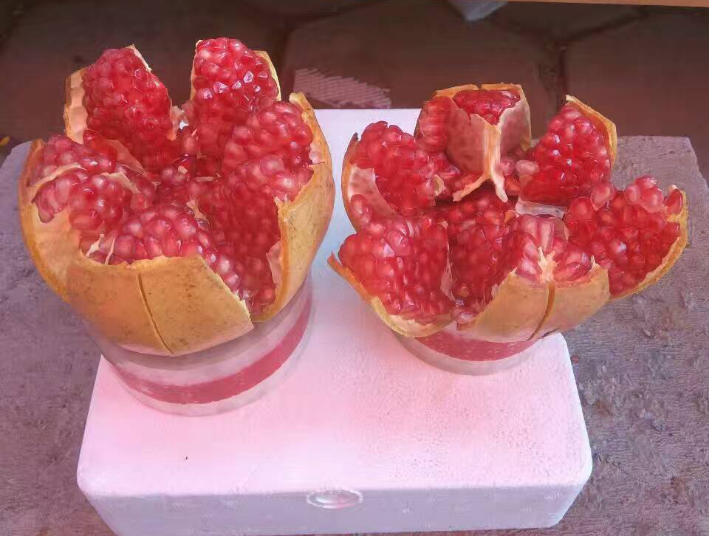
 Oct
18, 2019
Oct
18, 2019
The new article that assembled the soft-seeded pomegranate ‘Tunisia’ genome was published on Plant Biotechnology Journal at September 24, 2019. This study provides new insights into the genetic divergence between soft- and hard-seeded cultivars in pomegranate, which is helpful for future molecular improvement. Pomegranate ( Punica granatum L.) is an important edible fruit tree species native to central Asia. The fruit has gained widespread popularity because of its functional and nutraceutical properties. The properties of pomegranate juices, seeds, and extracts are potentially beneficial for treating cardiovascular disease, diabetes, and prostate cancer. Traditional hard-seeded pomegran...

 Apr
05, 2019
Apr
05, 2019
Crop evolution is a long-term process involving selection by natural evolutionary forces and anthropogenic influences; however, the genetic mechanisms underlying the domestication and improvement of fruit crops have not been well studied to date. An important research progress which described selection sweeps and candidate genes associated with fruit domestication traits in peach through comparative population genomics study were achieved by one team headed by Wang Lirong at the Zhengzhou Fruit Research Institute and published in Plant Biotechnology Journal on April 5, 2019. Here, using multiple populations and tissues, the researcher performed several RNA-seq analyses in peach and found th...
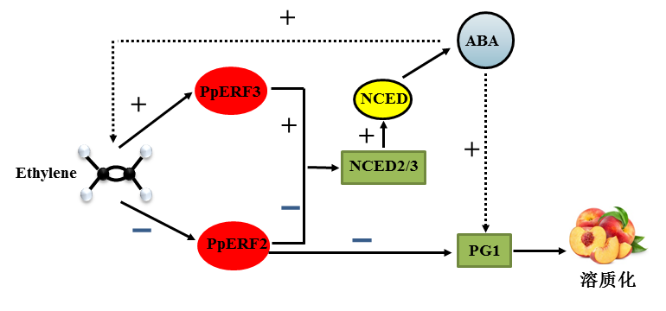
 Apr
04, 2019
Apr
04, 2019
The research team led by Professor Wang Zhiqiang from the Zhengzhou Fruit Research Institute of Chinese Academy of Agricultural Sciences (CAAS) has been working on the study of Peach fruit quality biology for many years. The team made important progress in the molecular mechanism of ethylene and abscisic acid synergistically regulating fruit ripening and softening. Peach cultivars are classified as melting flesh (MF) or non-melting flesh based on their fruit firmness and texture. Generally speaking, Ethylene is essential for the ripening of climacteric fruits;and ABA played an important role in non-climacteric fruits ripening process. Peach are climacteric fruits and exhibit a marked increa...
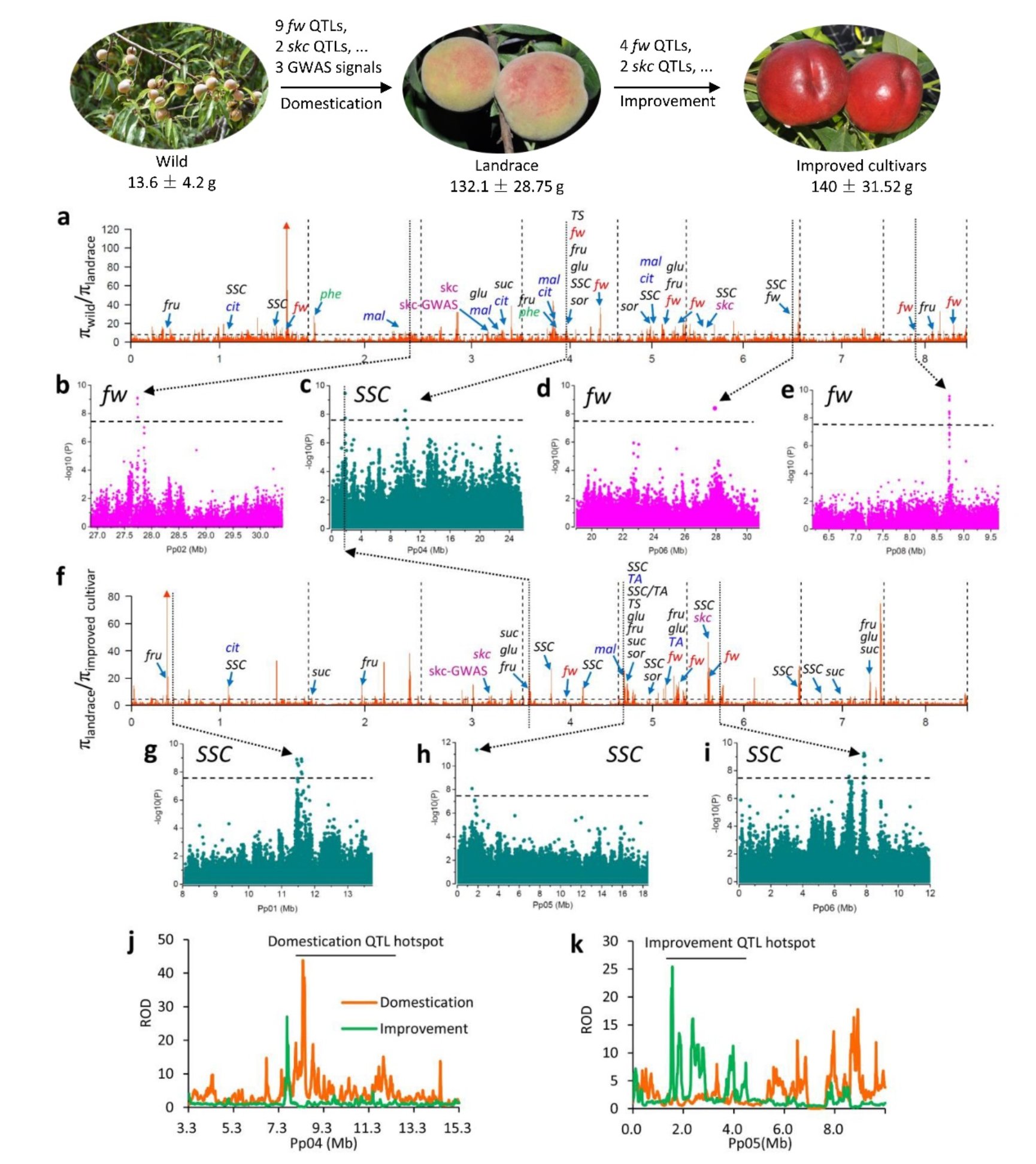
 Feb
25, 2019
Feb
25, 2019
The new article that described the genetic basis of breeding history of peach based on genome sequencing of 480 accessions was published on Genome Biologyat February 22, 2019. This study providesnew insights into the genetic footprints for peach during domestication and improvement and how human selection shapes the genomes, which is helpful for future genomic selection and molecular breeding.This study was mainly finished by Prof. Lirong Wang’s lab from Zhengzhou Fruit Research Institute, CAAS, cooperated with Prof. Wenwu Guo from Huazhong Agricultural University and Prof. Zhangjun Fei from Boyce Thompson Institute for Plant Research in Cornell University. Peach originates from China with ...
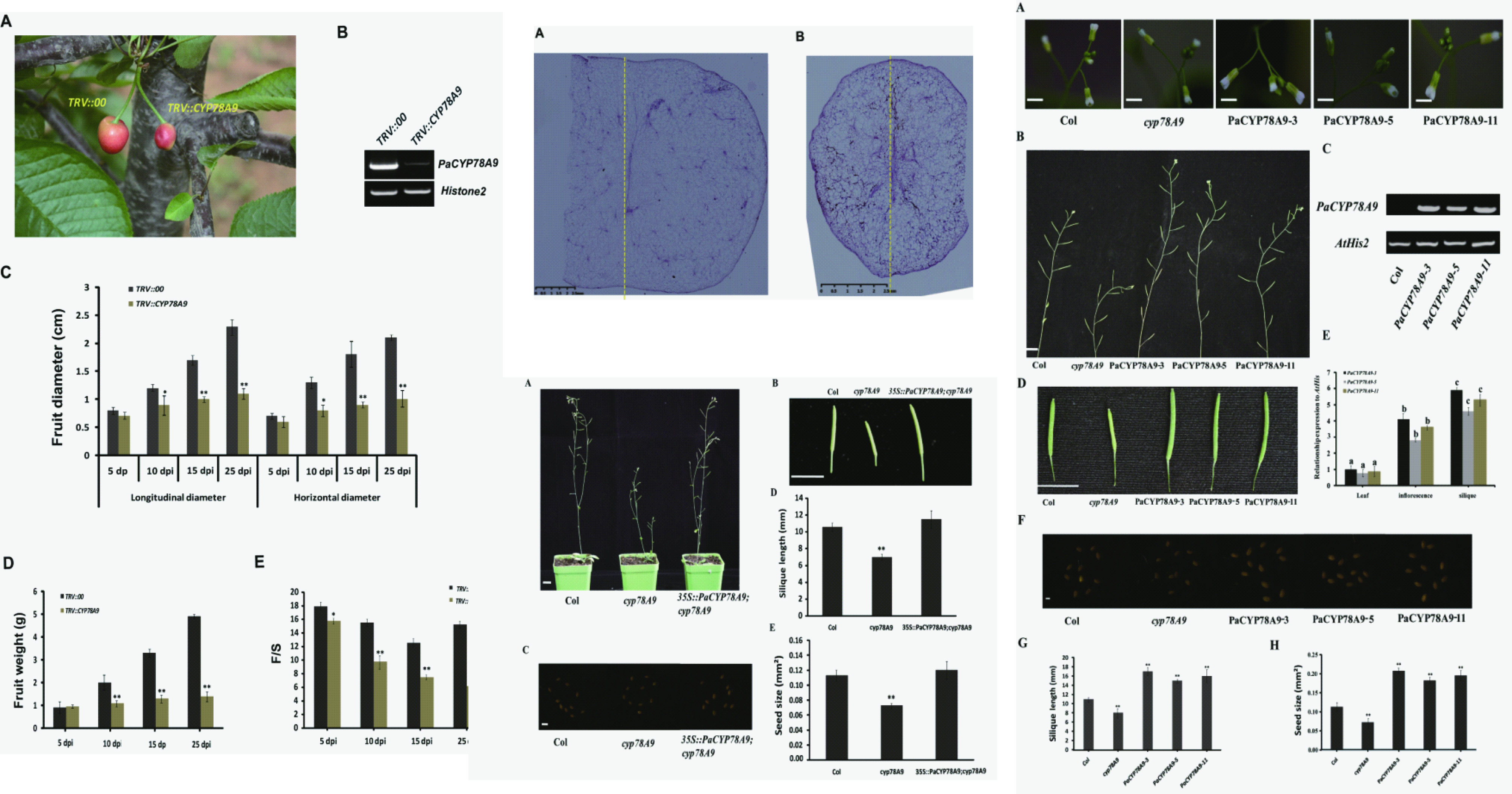
 Jun
15, 2018
Jun
15, 2018
Recently, a paper named “PaCYP78A9, a Cytochrome P450, Regulates Fruit Size in Sweet Cherry (Prunusavium L.)”reported by sweet cherry germplasm improvement research team from Zhengzhou Fruit Research Institute of Chinese Academy of Agricultural Sciences (CAAS) was published on the Frontiers in Plant Sciences. The essential role of PaCYP78A9 controlling the fruit size in P. avium was investigated in this paper. Sweet cherry (Prunusavium L.) is an important fruit crop in which fruit size is strongly associated with commercial value; few genes associated with fruit size have, however, been identified in sweet cherry. Here, we characterized a P. avium CYP78A gene PaCYP78A9 that is thought to be...
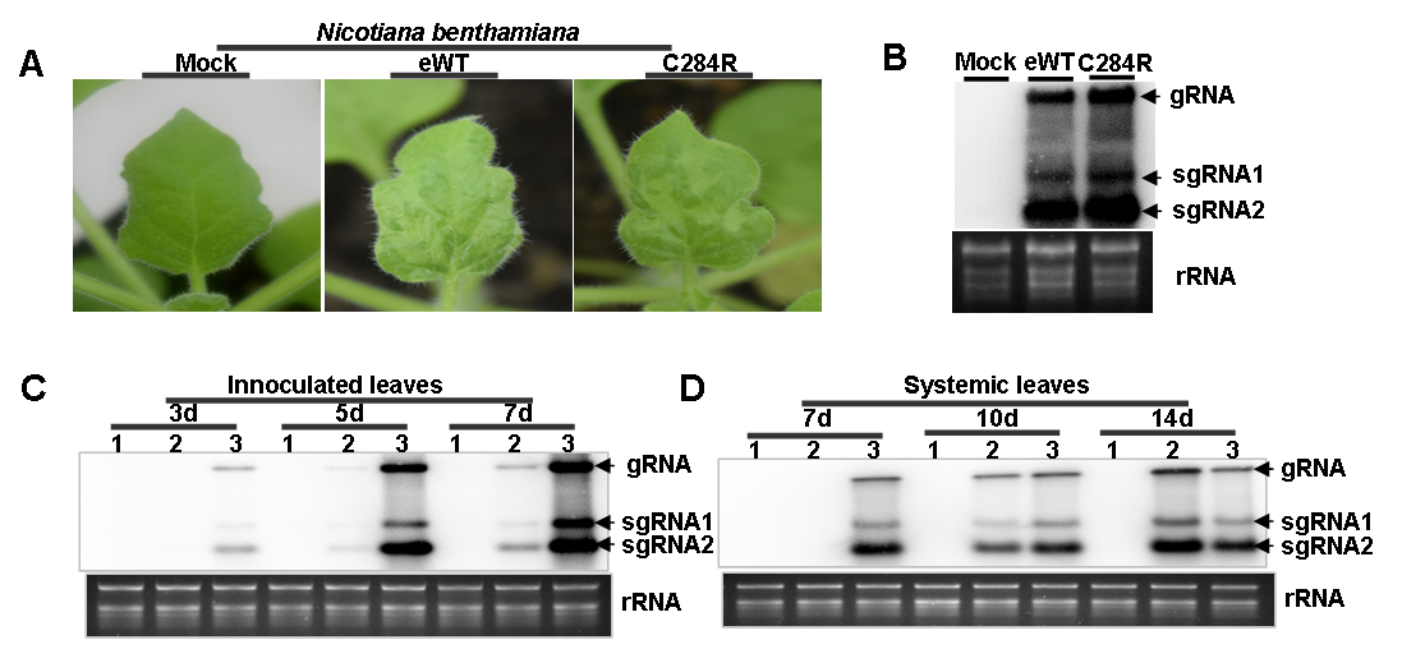
 Apr
26, 2018
Apr
26, 2018
The research team led by Professor Gu Qinsheng from the Zhengzhou Fruit Research Institute of Chinese Academy of Agricultural Sciences (CAAS) has been working on the prevention and control of cucurbit viral diseases. As cross-protection comes up, it supplies an interesting and efficient mean for the control of cucurbit viruses. Herein, an important research stride on the construction of infectious clones of cucurbit viruses and the acquisition of good candidates to attain stable symptom attenuation for them has been made. Herein, an agroinfectious cDNA clone for the hn isolate of Cucumber green mottle mosaic virus (CGMMV) was developed and a nonconserved mutation involving a single nucleoti...
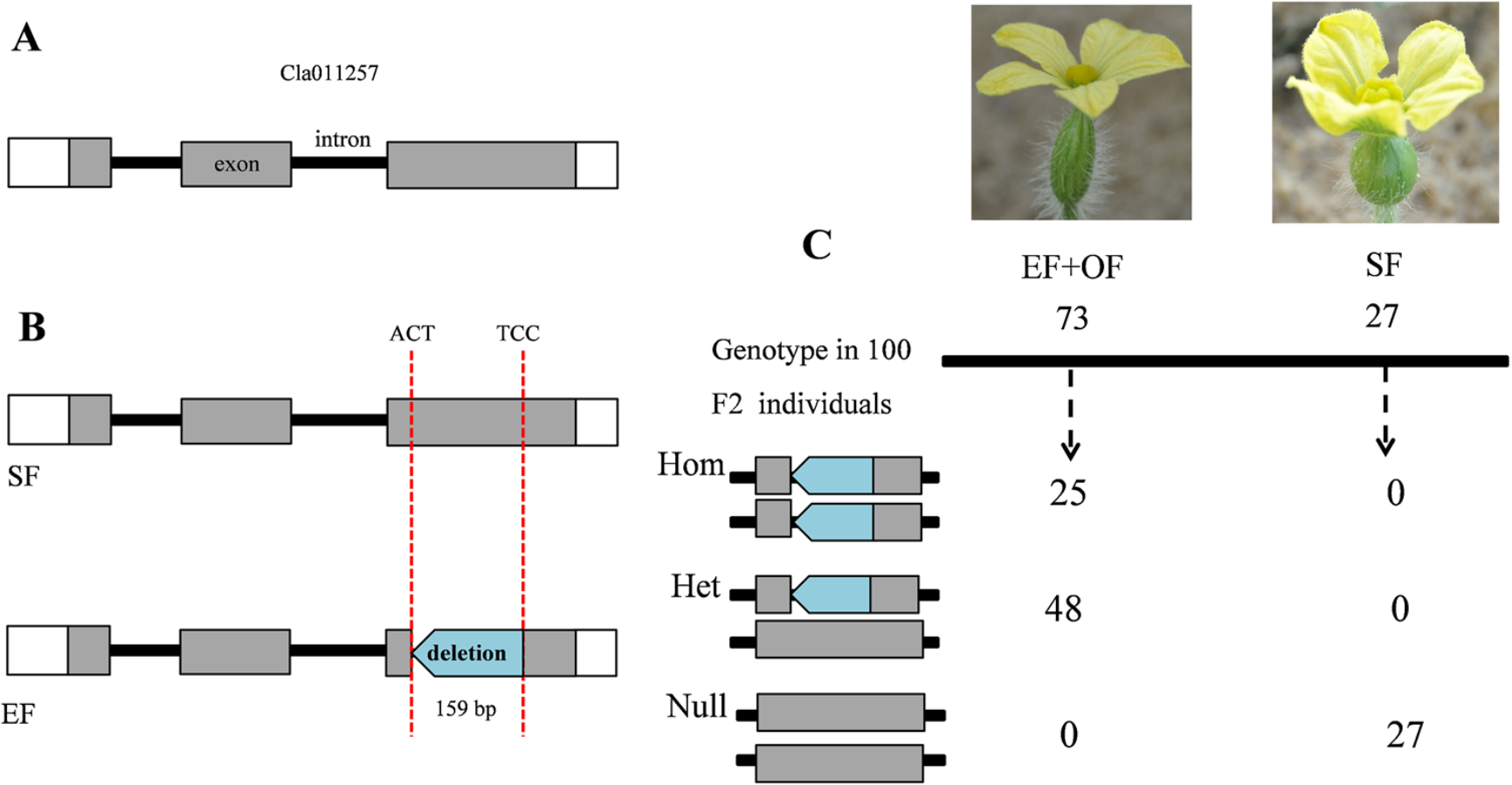
 Apr
13, 2018
Apr
13, 2018
The polyploidy watermelon breeding group of Zhengzhou Fruit Research Institute, Chinese Academy of Agricultural Sciences (CAAS) reveals a candidate gene for fruit shape in watermelon. The related paper was recently published on Theoretical and Applied Genetics. As an important cucurbit crop throughout the word, watermelon presents different fruit shapes including elongate, oval and spherical. However, the genetic pattern and the developmental mechanisms of watermelon fruit shape are not justified yet. In this study, Segregation analysis suggested that fruit shape of watermelon was controlled by a single locus and elongate fruit (OO) was incompletely dominant to spherical fruit (oo) with th...
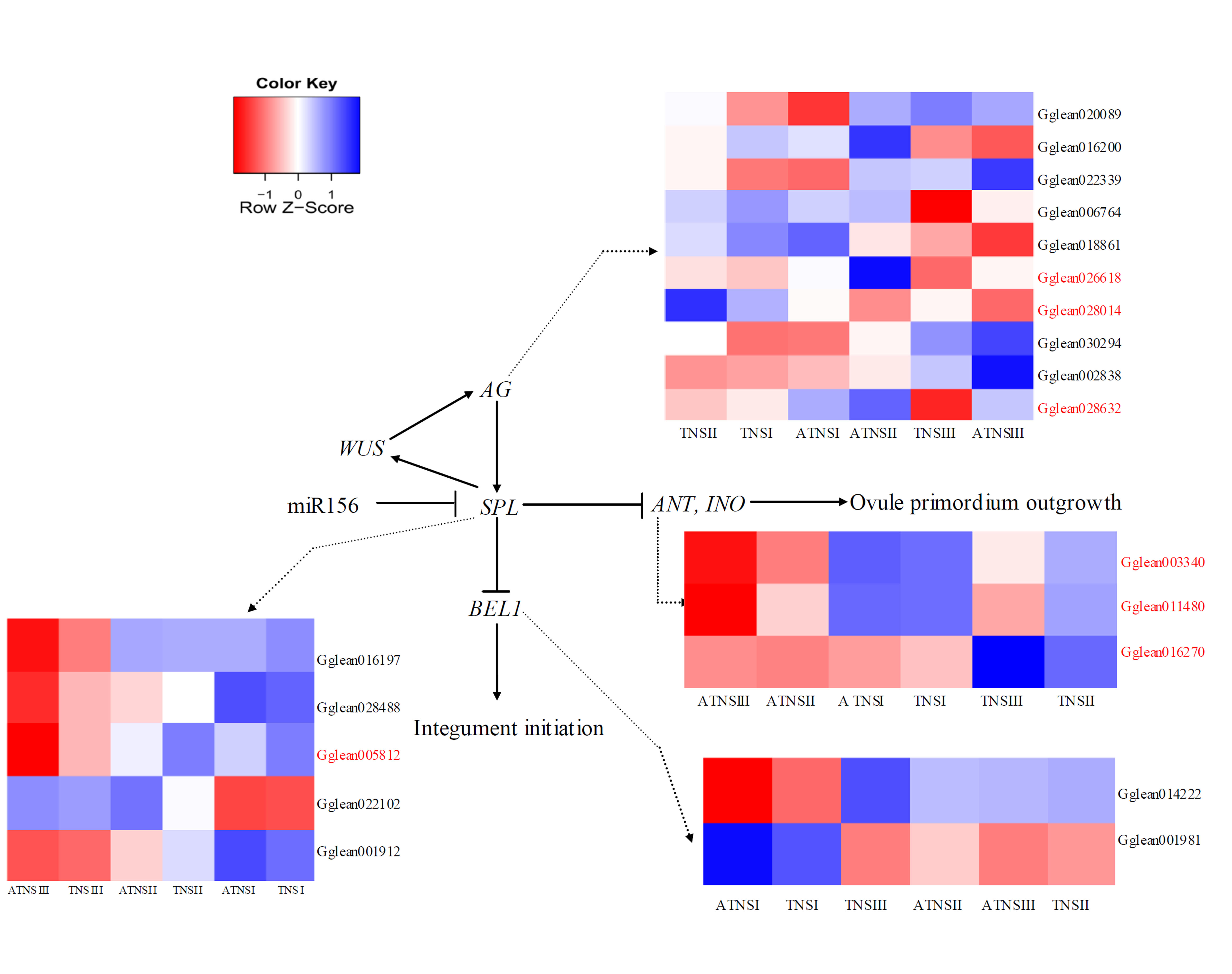
 Jul
13, 2017
Jul
13, 2017
In August, the Journal of 'frontiers in plant sciences' published a paper entitled"Transcriptomic Analysis Reveals Candidate Genes for Female Sterilityin Pomegranate Flowers" reported by Cao Shangyin's lab from Zhengzhou Fruit Research Institute, CAAS. In this paper, the authors reported the key stage and reason for female sterility as well as the candidate genes controlling and regulating female sterility in pomegranate. Pomegranate (Punica granatum L.) is a shrub that is native to central Asia (Holland et al., 2009), it is valued for its juicy aril sacs,which are claimed to be of benefit to human health. Two types of flowers are produced on anindividual pomegranate tree: FMF and BF). FMFs...
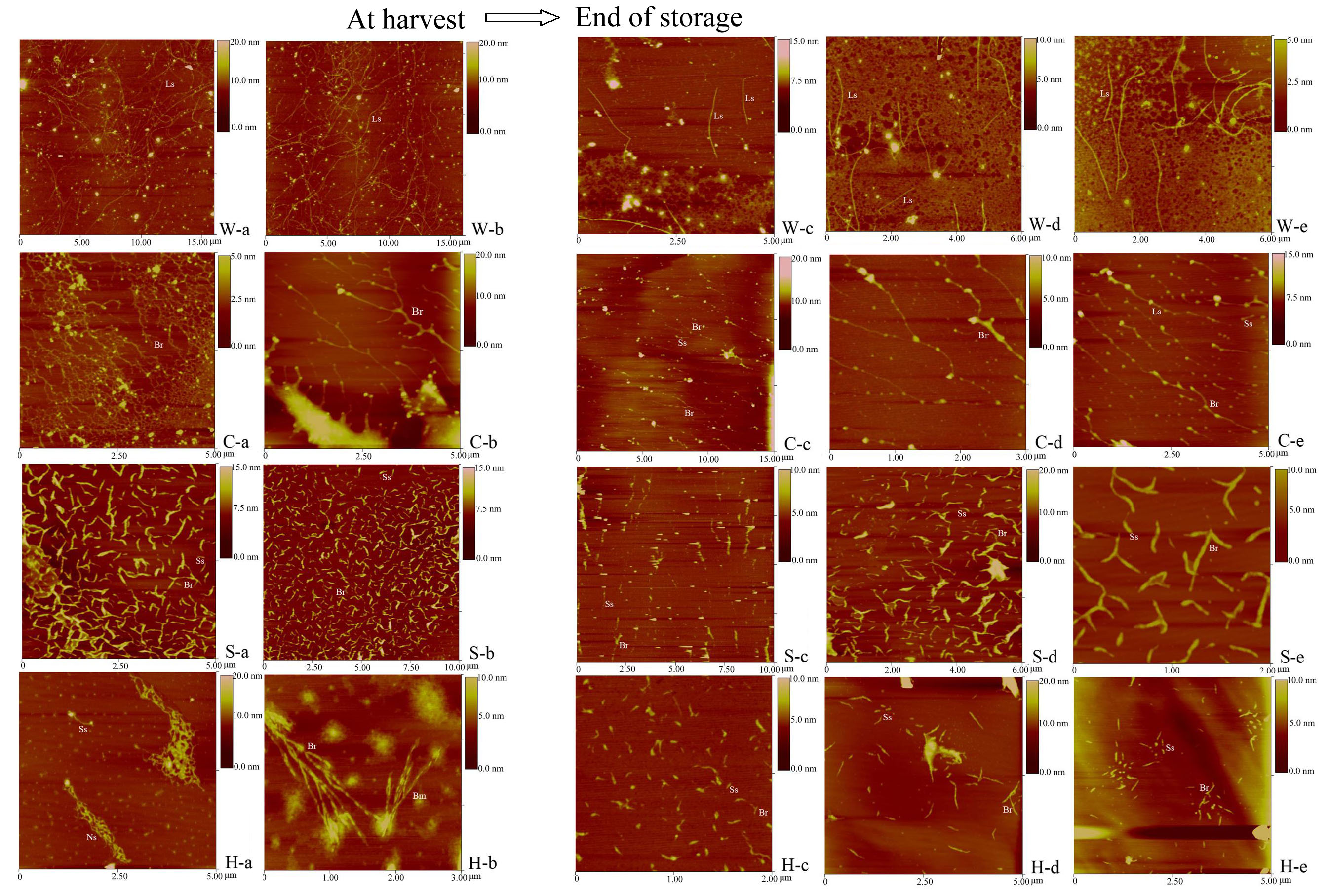
 Jun
27, 2017
Jun
27, 2017
An important research progress which described cell wall polysaccharide nanostructures and quality of postharvest apricot during cold storage was achieved by the Department of Fruit Processing and Storage at the Zhengzhou Fruit Research Institute and published in Food Chemistry in January, 2017. The paper investigated the nanostructure and characterization of cell wall polysaccharides, analyzed the quantitative results and induced the degradation pathway of pectin chains during the fruit softening. The detailed mechanism may be of interest for future fruit texture properties and postharvest storage research. The texture of fruit is a key quality parameter that affects consumer preference. T...
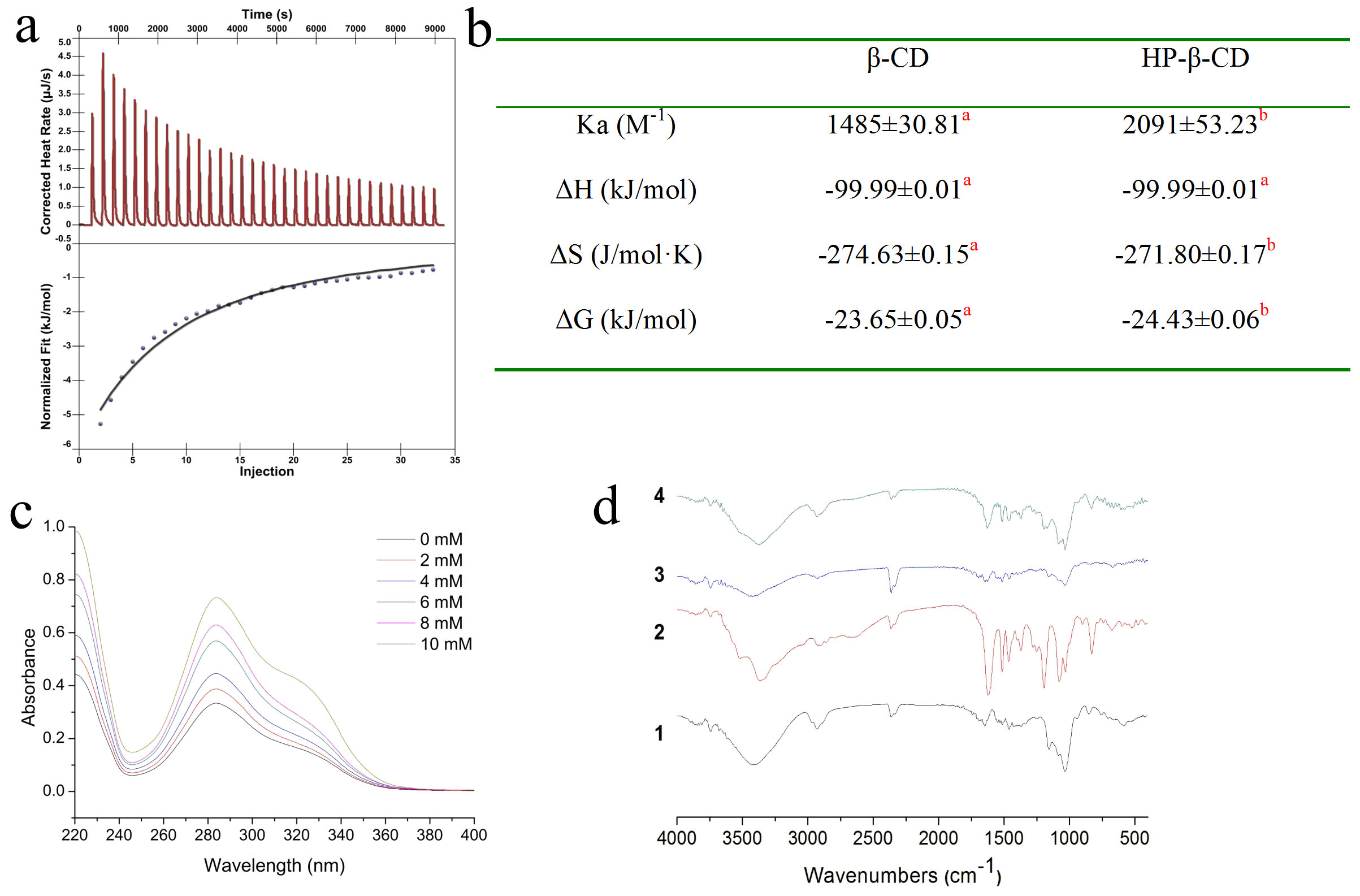
 Jun
26, 2017
Jun
26, 2017
A new research result named Experimental and molecular docking investigations on the inclusion mechanism of the complex of phloridzin and hydroxypropyl-β-cyclodextrin was achieved by one team headed by Jiao Zhonggao at the Zhengzhou Fruit Research Institute and published in Food Chemistry in July, 2016. This study could prompt the application of phloridzin in food industry and guide the molecular design of hydroxypropyl-β-cyclodextrin (HP-β-CD). Phloridzin is a dihydrochalcone primarily found in apples and Lithocarpus polystachyus Rehd(a traditional Chinese sweet tea) with many health-promoting functions, such as antioxidant, antidiabetic, antitumor and anti-inflammatory activites. Due to i...
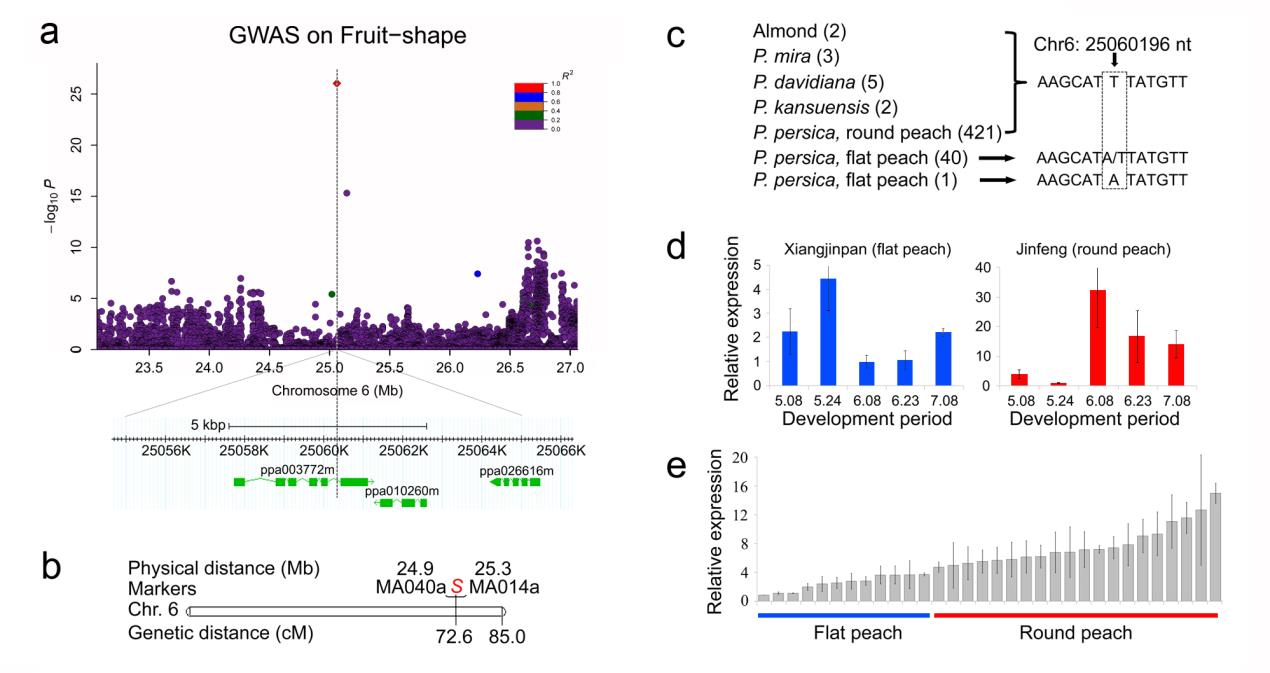
 Nov
28, 2016
Nov
28, 2016
An important researchprogress which described genome-wide association study of 12 agronomic traits in peach was achieved by one team headed by Wang Lirong at the Zhengzhou Fruit Research Institute and published in Nature Communications in November, 2016. The paper was recommended to be put into the ‘Highlight’ column because of its significance. And the editor said that: Lirong Wang and Zhixi Tian and colleagues report genetic regions that are associated with twelve important traits relevant to the taste and appearance of the fruit, providing valuable genetic data that could be used to inform future breeding efforts. Such insights are not only important from a practical agronomic perspective...
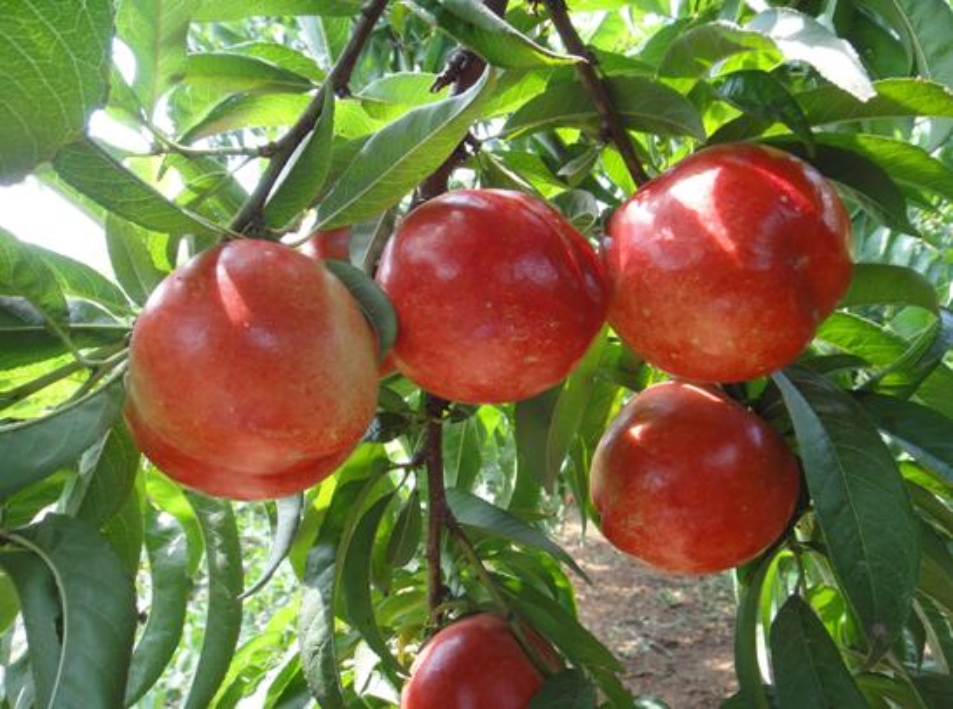
 Aug
16, 2016
Aug
16, 2016
Recently, two new nectarine varieties,‘CN13’ and ‘CN15’, has grantedplant variety protection from ministry of agriculture, those varietiesbeing developed by the peach breeding team led by Professor Wang Zhiqiang from Zhengzhou Fruit Research Institute of CAAS. ‘CN13’ is a white flesh table-nectarine variety, the average ripeningdate in Zhengzhouislate June, fruit shape is round and groundcolor of fruit skin is cream white with bright red blush, average fruit weight for ‘CN13’was 201 g and the big fruit weightgreater than 300 g. Fruits of ‘CN13’are clingstone, melting flesh, have a very sweet flavor and lot of anthocyanins in flesh.The average soluble solids, total sugar, total acidity andVc...

 Jul
07, 2016
Jul
07, 2016
Recently, two flat peach varieties ‘Zhongpantao10’and ‘Zhongpantao 11’ have beenreleased by Lirong Wang’s peach genetics and breeding team of Zhengzhou Fruit Research Institute, Chinese Academy of Agricultural Sciences (ZFRI-CAAS) and authorized by the Office of the Protection of New Varieties of Plants. Zhongpantao 10 Zhongpantao11 Flat peach (Prunuspersica)is the Chinese traditional favorite fruit. However, some defaults such as splitting stone, thin skin, soft flesh and short shelf life are present in production, whichlimits the flat peach development in...
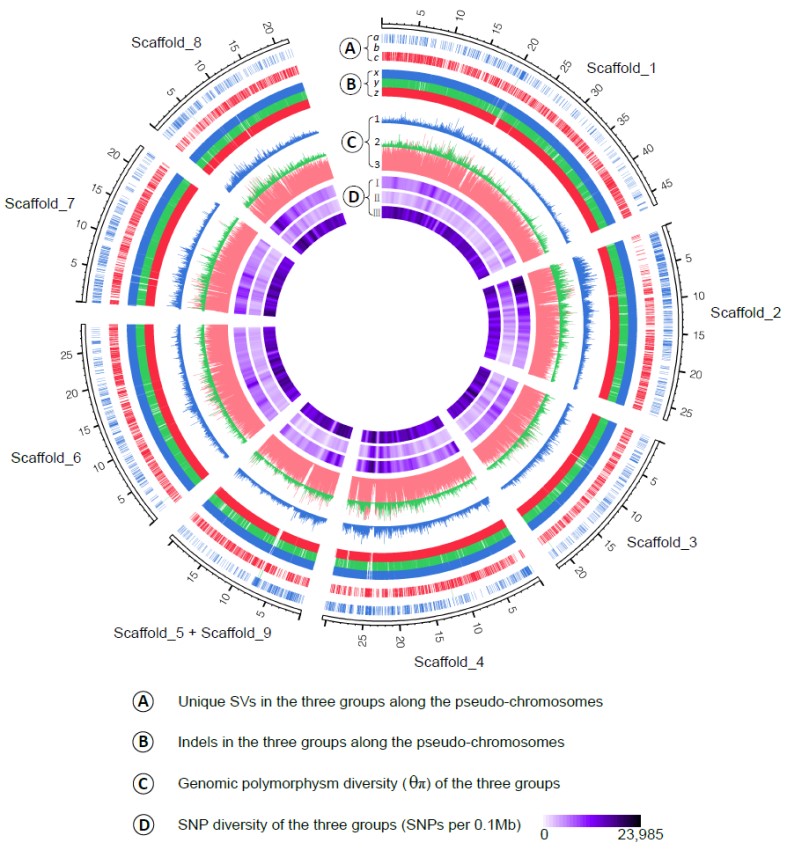
 Aug
06, 2014
Aug
06, 2014
Recently, researchers at the Zhengzhou Fruit Research Institute (ZFRI) of Chinese Academy of Agricultural Sciences (CAAS) have made a periodical progress on the research of peach resequencing. Through a large-scale resequencing of 10 wild and 74 cultivated peach varieties, a phylogenetic tree based on the genetic distances calculated from the genotypes at all the SNP positions of the 84 peach varieties were constructed. Meanwhile, 147 and 262 genes under edible and ornamental selection were identified, respectively. The research has been published online in the GenomeBiologyon July 31th, 2014. According to Dr. Wang Lirong, head of the research team at the ZFRI, the cultivated population has...